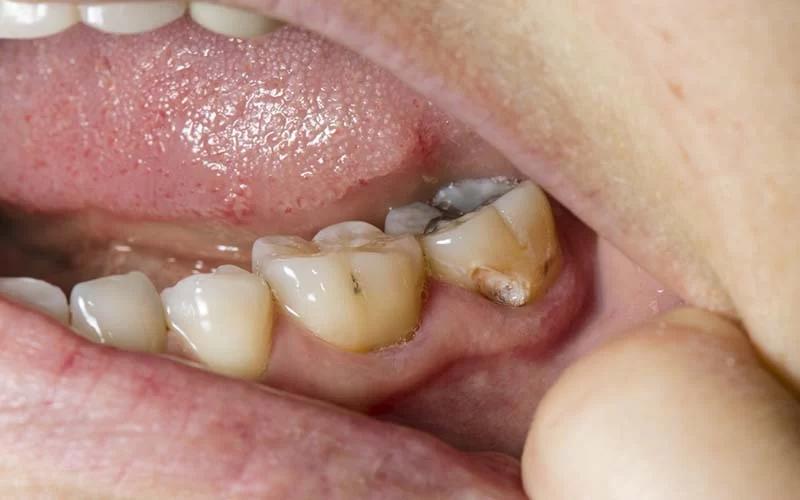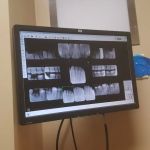
How to Avoid Tooth Decay: Tips for Preventing Cavities and Maintaining Healthy Teeth
Taking care of your teeth is essential for maintaining overall health. Tooth decay, also known as cavities, is one of the most common oral health issues people face. I’ve struggled with my fair share of dental visits, some of them due to neglecting my oral hygiene. However, after learning more about how to avoid tooth decay, I realized that with some simple changes, it’s possible to keep my teeth healthy and avoid cavities for good. Here’s what I discovered, and I want to share it with you so you can also enjoy a lifetime of strong, healthy teeth.
1. Brush and Floss Regularly
This might sound obvious, but brushing and flossing are still the best ways to avoid tooth decay. Brushing twice a day with fluoride toothpaste helps remove food particles and plaque, which are the primary contributors to tooth decay. For me, I make sure I brush my teeth in the morning and before bed, using a soft-bristled toothbrush to avoid damaging my gums. I used to skip flossing, but after learning how important it is, I now floss at least once a day. Flossing removes plaque and food between the teeth where a toothbrush can’t reach. It’s an essential step in preventing cavities.
2. Limit Sugary Foods and Drinks
One of the biggest culprits of tooth decay is sugar. When I started paying more attention to the sugar in my diet, I noticed a significant improvement in my oral health. Sugary foods and drinks feed the bacteria in our mouths, which then produce acids that erode tooth enamel, leading to cavities. I cut back on sugary snacks, soda, and juices, and I now choose healthier snacks like fruits, nuts, and vegetables. It’s not always easy, but my teeth are thanking me!
3. Drink Plenty of Water
Water plays a crucial role in keeping your mouth healthy. I’ve learned that staying hydrated is important for helping to wash away food particles and bacteria. Plus, drinking water helps stimulate saliva production, which is the mouth’s natural defense against tooth decay. Saliva neutralizes acids, repairs enamel, and helps prevent cavities. I try to drink water throughout the day, especially after meals or sugary snacks, to keep my mouth clean and my teeth healthy.
4. Visit Your Dentist Regularly
Regular dental check-ups are key to preventing tooth decay. I always thought I could wait until I felt pain to see a dentist, but I’ve realized that early detection is the best way to prevent serious issues. Now, I visit my dentist every six months for a cleaning and check-up. During these visits, my dentist checks for cavities, gum disease, and any other issues that might be developing. This early intervention has saved me from more serious dental problems down the road.
5. Use Fluoride Treatments
Fluoride is a powerful tool in the fight against tooth decay. I started using fluoride toothpaste, and I’ve noticed a big difference in the health of my teeth. Fluoride strengthens the enamel, making it more resistant to the acids that cause decay. My dentist also recommended fluoride treatments, which can be done at the office or with fluoride mouth rinses I use at home. If you're at risk for tooth decay, talk to your dentist about fluoride treatments.
6. Avoid Smoking and Tobacco Products
Smoking and using tobacco products have a significant negative effect on oral health. I used to smoke, and I can tell you that it was not only bad for my lungs but also harmful to my teeth. Tobacco products can cause gum disease, dry mouth, and increase the risk of cavities. I quit smoking, and I’ve noticed a significant improvement in my oral health since then. If you smoke or use tobacco, consider quitting to protect your teeth and gums.
7. Sealants for Extra Protection
If you have children or are looking for additional protection against cavities, dental sealants are a great option. I had sealants applied to my molars as a child, and I still have them today. Dental sealants are thin coatings applied to the chewing surfaces of your back teeth to prevent bacteria and food from getting trapped in the grooves. If you’re interested in sealants, talk to your dentist about whether they are right for you or your children.
8. Chew Sugar-Free Gum
Chewing gum might seem like an odd way to prevent tooth decay, but it actually works. I started chewing sugar-free gum after meals to help clean my teeth and increase saliva production. It’s a quick and easy way to fight cavities on the go. Sugar-free gum with xylitol is particularly helpful because it has been shown to reduce cavities by neutralizing acids in the mouth.
9. Be Aware of Medications That Can Affect Oral Health
Some medications can have side effects that increase the risk of tooth decay. After learning this, I spoke with my doctor about how my medications might be affecting my oral health. Some medications, especially antihistamines, antidepressants, and blood pressure drugs, can reduce saliva flow, leading to dry mouth. Dry mouth makes it easier for plaque to build up and increases the risk of cavities. If you’re taking medications, be sure to talk to both your doctor and dentist about how they may affect your oral health.
10. Educate Yourself and Your Family
The more I learned about tooth decay and oral hygiene, the easier it became to make better choices for my dental health. Now, I share this information with my family, especially my kids. Teaching them about the importance of brushing, flossing, and avoiding sugary foods helps them take control of their oral health from a young age. The more we know about tooth decay prevention, the better we can protect our teeth for years to come.
Tooth decay might be common, but it’s also preventable. By following these tips and committing to good dental hygiene practices, I’ve managed to avoid tooth decay and maintain a healthy smile. Remember, it’s not just about brushing and flossing—lifestyle changes, regular dental visits, and the right protective treatments play a huge role in preventing cavities. I hope this information helps you maintain healthy teeth and keep your smile bright for years to come!







 Sky Dental Group2.0 (54 review)
Sky Dental Group2.0 (54 review) Dr. Daniel S. Fife, DDS4.0 (31 review)
Dr. Daniel S. Fife, DDS4.0 (31 review) Wirth Dental, Duane L. Wirth DDS, David L. Wirth DDS5.0 (39 review)
Wirth Dental, Duane L. Wirth DDS, David L. Wirth DDS5.0 (39 review) Apache Dental Center4.0 (760 review)
Apache Dental Center4.0 (760 review) West Coast Dental of South Gate3.0 (495 review)
West Coast Dental of South Gate3.0 (495 review) Hillside Family Dentistry4.0 (108 review)
Hillside Family Dentistry4.0 (108 review) The Importance of Oral Health Education During Pregnancy for a Healthy Pregnancy
The Importance of Oral Health Education During Pregnancy for a Healthy Pregnancy Best Tips for Brushing Your Teeth Properly for Healthy Gums: Essential Techniques for Oral Health
Best Tips for Brushing Your Teeth Properly for Healthy Gums: Essential Techniques for Oral Health Why Skipping Dental Checkups Can Lead to Bigger Oral Health Problems
Why Skipping Dental Checkups Can Lead to Bigger Oral Health Problems Advantages of Porcelain Dental Restorations
Advantages of Porcelain Dental Restorations How Can Diabetes Cause Tooth and Gum Problems? Preventing and Managing Oral Health Issues
How Can Diabetes Cause Tooth and Gum Problems? Preventing and Managing Oral Health Issues Healthy Habits for Promoting Good Oral Health and Hygiene: Tips for a Healthy Smile
Healthy Habits for Promoting Good Oral Health and Hygiene: Tips for a Healthy Smile